November 1, 2018 is the day when the new national standard for rebar is implemented. The new national standard has been issued as early as the beginning of the year.
What is the new national standard for rebar?
Compared with the old standard GB/T1499.2-2007, the new standard has been improved and improved from the following points.
The increased smelting methods are: smelting in converters and electric arc furnaces, and refining outside the furnace if necessary.
Added 600MPa grade steel bar.
Hot-rolled ribbed steel bars, commonly known as rebars, are widely used in civil works such as houses, bridges, and roads. According to the needs of building quality in recent years, policies have also vigorously promoted high-strength steel bars. At present, many companies have developed 500/600 grade steel bars, and 400, 500, and 600 strength grade rebars have been formed on the market. In the United States, Canada, South Korea and other countries, the use of 400MPa rebar has reached more than 70%, 500MPa has also reached 25%. Germany, France, Britain and other 500MPa level has reached more than 70%, and the requirements for 600MPa grade steel bars have been proposed.
With the development of society and the improvement of quality requirements, high-strength steel will be widely used in the future, and the upgrading of construction steel is also an inevitable trend. According to statistics, HRB400 can save 12% of the amount compared to HRB335.
Appropriate tightening of weight deviation, no retesting is allowed.
China is the country with the largest amount of rebar, and the new standard also imposes a stricter tightening on the weight deviation. The weight deviation of the rebar of the φ12 specification in the current implementation standard is ±7%, and this time it is also appropriately increased to ±6%. The measurement itself can avoid the measurement error caused by single measurement. It is not necessary to retest if the measurement error is negligible.
Add metallographic inspection requirements and supporting inspection methods.
This condition has caused the market to pay the most attention to the water-passing process, as a basis for judging hot-rolled steel bars (mainly by adding alloying elements to increase strength) and water-passing steel bars (mainly by water-through process to increase strength). It can effectively avoid the use of water-resistant steel bars to counterfeit hot-rolled steel bars.
In the past, water-reinforcing steel bars were difficult to distinguish by the naked eye on the construction site. When the water-reinforcing steel bars needed to be welded, the crystal structure would expand due to the temperature increase, which would then lead to a decrease in the strength of the welded parts, thus l affecting the quality of the building.
After the adjustment of the new national standard, due to the change of the process, the production cost of rebar will also increase significantly. After the implementation of the new national standard, the main alloying elements such as manganese, silicon, vanadium and titanium, and microalloying elements such as vanadium, which are required to be added in the production process, are increased.
In the non-water-passing process, the vanadium element is 0.025-0.03%, the manganese element is 1.3-1.4%, the silicon is 0.4-0.5%, the alloy comprehensive cost is about 420 yuan/ton, and the new vanadium cost is 230 yuan/ton. Domestic vanadium prices have risen since the beginning of this year. At present, vanadium prices remain strong. Currently, the price of nitrogen-vanadium alloys has reached 7.7-82 million tons/ton, and the price of ferro-vanadium has been reported at 500,000/ton, up by 218% and 163% respectively from the beginning of the year. Due to the sharp increase in the price of vanadium-containing products, the cost of the new national standard thread has generally risen above 200 yuan / ton.
That is to say, after the new national standard is implemented in the rebar, the cost of the rebar is raised due to the vanadium addition process, and the price difference between the rebar and the hot-rolled coil due to the process difference is basically smoothed.
The recent roll-to-roll spread has reached -390, mainly due to the difference in real estate, infrastructure and steel-based demand for rebar.



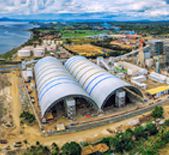
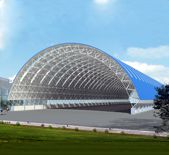
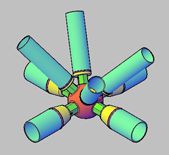
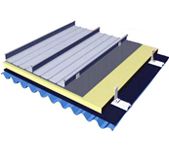
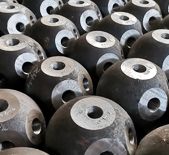



 About Us
About Us 2021-02-02
2021-02-02


